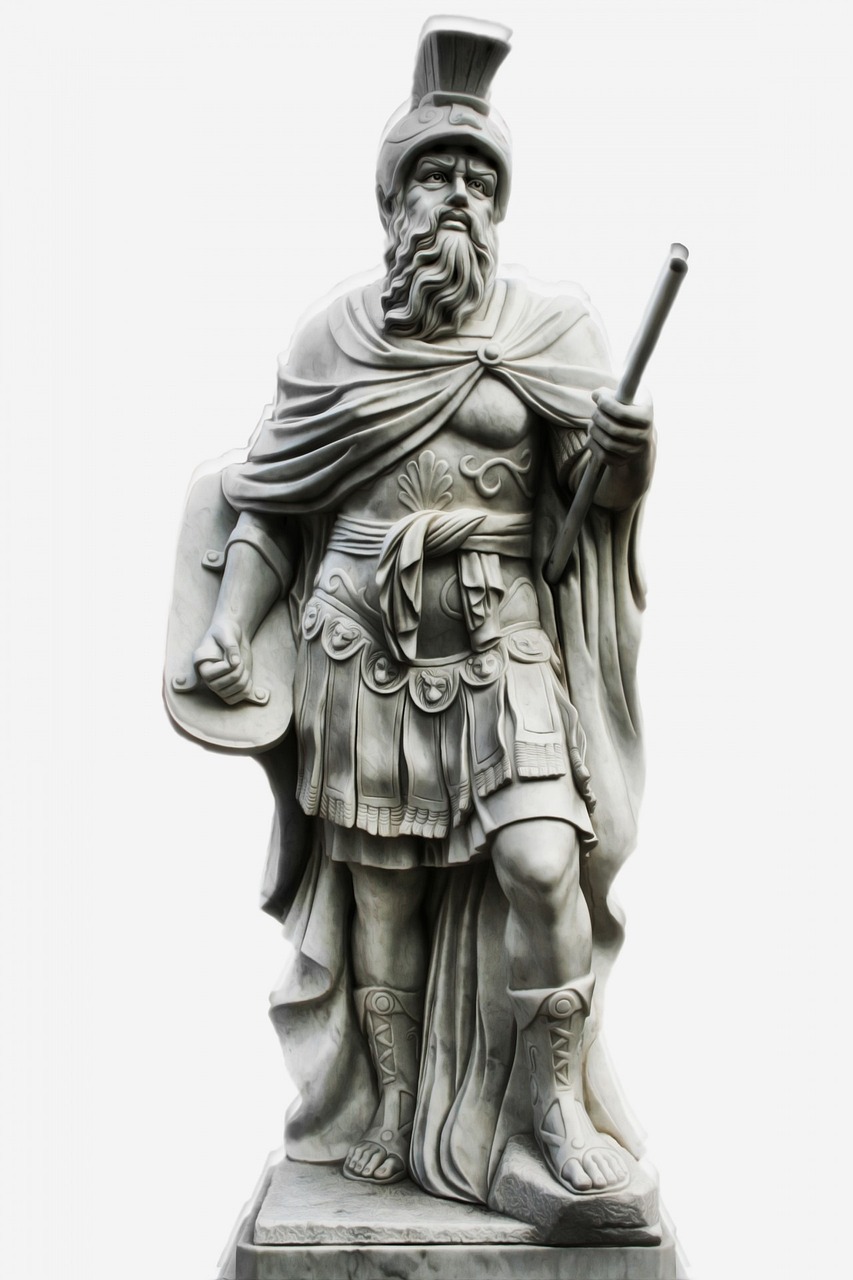Roman Religion: A Study of Beliefs and Practices
Roman religion encompassed the beliefs and rituals followed by those on the Italian peninsula from ancient times up until the rise of Christianity in the 4th century CE, a time referred to as Classical Antiquity. Cicero, the renowned orator and statesman, remarked that the Romans stood out for their ability to comprehend that everything is subordinate to divine guidance. It is important to note that Roman religion did not solely rely on divine favor but was instead based on mutual trust (fides) between deities and humans. The primary aim of Roman religious practices was to ensure the cooperation and goodwill of the gods—referred to as pax deorum. The Romans were convinced that receiving such divine assistance enabled them to navigate and conquer the unknown forces that inspired both wonder and trepidation (religio), thus allowing them to lead prosperous lives.
To facilitate this, a body of rules known as jus divinum (divine law) was established, dictating the necessary actions and prohibitions. For centuries, these guidelines contained little in terms of moral instruction; rather, they focused mainly on the proper execution of rituals. Roman religious observance placed overwhelming importance on ceremonial acts, treating them with the same reverence bestowed upon cultural traditions. The meticulousness and conservatism of Roman ceremonies were such that, even today, remnants of early thoughts can be discerned beneath the layers of subsequent practices—unlike Greek religion, where these early notions are often obscured.
When the Greeks began to chronicle their religion, they had already cultivated complex, abstract, and at times audacious notions of the divine and its connection to humanity. Conversely, the methodical and legalistic Romans maintained their archaic customs for a significant duration. The influence of the Greeks eventually brought vivid depictions into Roman spirituality, but the Romans were initially not inclined to personify their gods in human forms or embellish them with intricate mythologies. This leads to a striking observation: a distinct Roman mythology is notably absent. Despite the discovery of mythological elements in Etruria, the mythos associated with Roman culture remains minimal. What is often characterized as Roman mythology tends to be a superficial layer of borrowed Greek narratives intertwined with nationalistic or familial stories.
Moreover, Roman religion lacked a formal creed. Adherence to correct religious practices permitted individuals to hold personal beliefs about the gods. Consequently, emotional expressions were generally regarded as inappropriate in worship. Although ancient elements persist in Roman religious practices, reconstructing its historical narrative proves challenging. Primary literary sources date back several centuries, penned by antiquarians such as Varro and Verrius Flaccus, whose writings emerged approximately 700-800 years after the foundation of Rome. By then, the infusion of Greek thought and myth had led to misinterpretations—often flattering—of the distant Roman past. To fill in historical gaps, scholars examine surviving versions of religious calendars and inscriptions, along with a vast array of evidence found in coins, medallions, and artistic works.
Early Roman Religion Insights
Archaeological findings offer some insights into early Roman religious beliefs but remain insufficient for a comprehensive reconstruction. Evidence suggests that in the early 1st millennium BCE—though not necessarily aligned with the traditionally accepted date of Rome’s founding in 753 BCE—Latin and Sabine shepherds and farmers migrated from the Alban and Sabine Hills to establish villages in Rome. By around 620 BCE, these communities had merged; around 575 BCE, the Forum Romanum became a central gathering and marketplace for the town.
The initial Romans exhibited a unique tendency to see divine influence manifesting through various functions and actions, whether in human endeavors such as childbirth or natural phenomena like the movement of celestial bodies. This reverence extended not only to recurring events that impacted human life but occasionally to extraordinary occurrences, such as a mysterious voice that once intervened during a crisis (known as Aius Locutius). They identified a multitude of functional deities, creating a sense of “religious atomism” where numerous powers were ascribed to specific aspects of existence. Each deity’s roles were distinctly defined, and it was vital to address them correctly by name to gain their attention. If one was unsure, the prudent approach involved acknowledging the divinity as “unknown” or including phrases like “or whatever name you prefer” or “if it be a god or goddess.”



